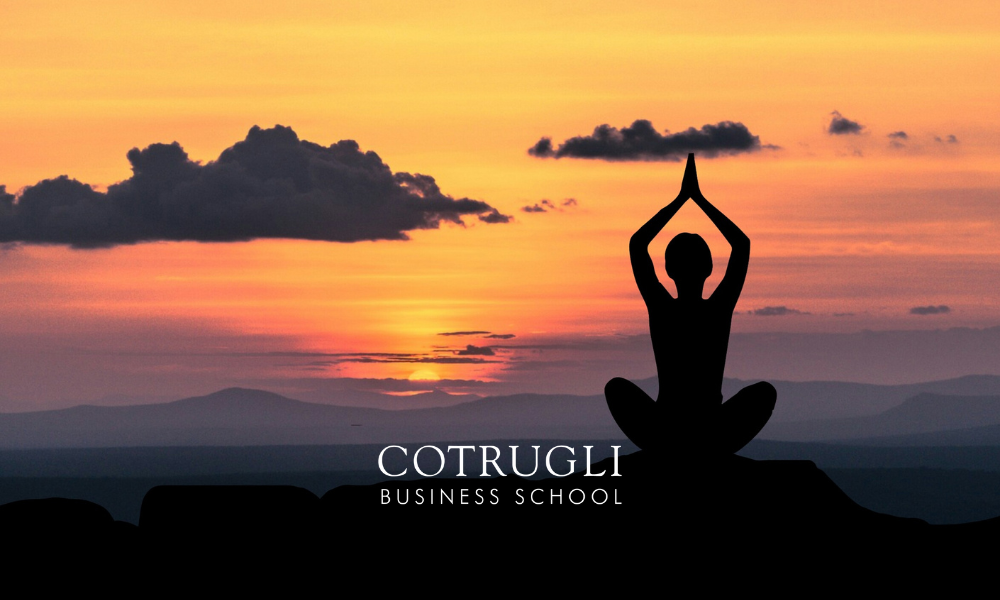The Self-Aware Self
Meditation is as old as the Eastern hills and during the last two decades, it’s been occupying an increasing number of Western minds. We will identify a few of the benefits and some good reasons to get started.
Many people have tried and found it wasn’t what it was cracked up to be. Others had great expectations only to have their hopes dashed, while some dip in and out of practice, according to their inclinations and timetable. And then there are the ‘dabblers’ who are always on the lookout for new and better ways to ‘do it’, dabbling as they go. All would probably consider themselves to be ‘practicing meditators’.
Types of Meditation
Where do you start? Dip into the menu of ‘types of meditation’ and you will find a dizzying number of methods, some ancient, some newly ‘designed’, some with recognized ‘pedigrees’ stemming from their origins, and others appearing from nowhere in particular. Some are practiced sitting down, some standing up, and some are done while ‘strolling’ around. And then there are the promises. Some promise greater concentration, some guarantee deep relaxation and others promise enlightenment. Most ‘methods’ are free of charge so there is no commercial ‘price comparisons’ to asses the apparent efficacy of each. So for all those new to the idea and practice of meditation, it’s no surprise they find it challenging just to choose where to start.
The Meaning
The original meaning of meditation lies in Latin, and apparently, it originally referred to all types of physical and intellectual exercise. Only later did the meaning evolve into something more akin to contemplation. Today it generally (very generally!) refers to the ‘cultivation of self-awareness’, which is slightly important considering we are mostly uneducated in the what, why and how we believe, think and feel. In essence, it is the self-awakening, unfolding and revealing all that lies dormant, distorted and distracted within the self to the self! It is the self seeing and freeing the self from the blocks, barriers, and boundaries both learned and accumulated on ‘the way’ known as life. And as it does a kind of inner healing takes place, hence many schools of meditation strongly associate healing with the origins of meditation.
If you sit quietly for a few minutes you will probably discover that you cannot sit quietly for a few minutes! The noise of an addictively busy mind will distract and defeat your attempt to be at peace, and to clearly see beyond the fog of your thoughts and emotions. With practice your ability to sit quietly for a few minutes will expand, as will your awareness of what exactly is going on within your consciousness and with what you are doing with the world in your consciousness.
What it is?
Meditation is essentially observing, noticing, and allowing all that is happening within your awareness to just ….happen! The moment you know that you are not ‘the happening’ that takes place in your awareness then you could be said to be on the ‘edge of enlightenment’. You will also likely realize that while ‘meditation’ may have many formal forms with lineages and titles and labels and processes, the true process of meditation is an informal, unstructured, ‘in the moment now’ experience of pure self-awareness. And you may then also come to realize there can only ever be one ‘kind’ of meditation and that is ‘your’ meditation. In the meantime here are possibly seven good reasons to get started.
Meditation as True Self-Awareness
Few of us truly know who and what we are. We have learned to base our sense of identity on what we are not (position, place, possessions, labels, etc.). Self-awareness is then limited and defined by what we identify with. Meditation is the only way to see and release all your false identities, which have their roots deep inside your consciousness. Meditation allows you to rediscover your true consciousness as spirit or soul or, if you prefer, ‘pure awareness’. This in turn sets you free from the insecurity that comes when you base your self-identity on something outside yourself. With a little meditative practice, you will even see that while your deepest beliefs ‘appear’ in your awareness they are also, in a sense, outside your ‘self’.
Meditation as Right Thinking
The aim of meditation is not to stop thinking. Thoughts themselves can be a starting point for observing and witnessing. Meditation will eventually help you to more consciously discern and control the quality and direction of your thoughts. In this way you can turn your mind away from harboring thoughts of physical, and material things, and towards your true spiritual nature, which is forever loveful and peaceful. Meditation helps you generate the highest quality of thinking, which benefits not only yourself but also your relationships and your work.
Meditation as Contemplation
Everything that happens in life has some meaning and significance. Unfortunately, we live so fast that we often miss the deeper meaning of events and the true significance of those people who pass through our lives. When you stop to ‘contemplate’ a certain situation or even just an object, you are using a meditative process to allow the event or object to awaken meaning and significance within your consciousness. If you reflect and contemplate on any scene at work today or on any current relationship, it will open like a flower to reveal insights and observations that can help you in such scenes and relationships in the future.
Meditation as Visualisation
We are all artists and our mind is the canvas. If you create a peaceful scene on the canvas of your mind, and meditate on that scene, holding it in your mind without becoming attached to it, investing it with depth and richness, you will begin to generate powerful feelings of peace and contentment from inside out instead of outside in. At the other end of the spectrum, if you envision your goals, and your preferred future achievements, and if you do not become attached to them, then you will begin to attract yourself the energies and circumstances to make them happen. Meditation helps you to concentrate and create – inner skills which many of us have lost in our fast and frenetic media-driven cultures.
Meditation as Silence
The most powerful place within your consciousness is at the core – it is the place of silence and stillness. It is this ‘inner space’ within each one of us that never changes. It is also your inner source of personal power – the power that you need to think positively and discern accurately. Meditation is a way into that inner silent space, and on the way in it allows you to see all the memories, experiences, and attachments that block the way and generate inner noise. Once you arrive, ‘in silence’, real peace is present, true love is rediscovered and a natural awareness of truth is restored.
Meditation as Communication
The context of all our lives is relationships. The currency of our relationships is our communication. At every moment we are sending messages to each other, whether we are aware of it or not. Despite the amazing toys we now use to talk to each other across the world, our communication is breaking down. Human communication is much more than just words and more than the ‘packets of data’ we send down the line. Real communication is filled with intimacy, real feelings, and invisible messages. To commune with each other at subtle levels is not something we learn in any academic forum. It is in meditation that we relearn how to cultivate, transmit and receive the kind of subtle communication that comes from the very heart of our soul.
Meditation as Creativity
The one capacity we all have in common is our creativity. It is probably why we are here! True creativity begins within, with yourself. This is not self-indulgent or escapist, it is the process by which you can choose the qualities of your own character. To meditate on patience is to create patience within yourself, to meditate on a generous heart is to restore generosity to your heart. In time all those around you will benefit. This makes your personal meditation a gift to your relationships as you create and bring the best of yourself to others.
There are probably several hundred good reasons to begin ‘the practice’ but ultimately it’s probably true to acknowledge that each one only starts when they are ready. A readiness to learn meditation and stick with it is usually generated by an increasing loss of inner peace and an expanding conflict with the outer world. In other words, the suffering that comes from being unself-aware, which is where all suffering ultimately has its roots, is such that a point comes when we can take it no more, and at last we become open to a different way to ‘do life’.
Question: Who are you?
Reflection: What matters?
Action: Stop. Be still. Watch.
Written by our professor Mike George







